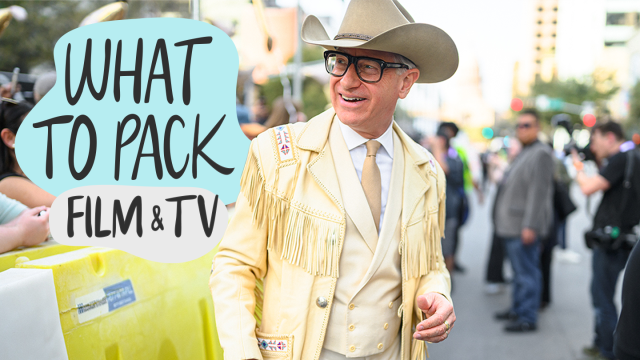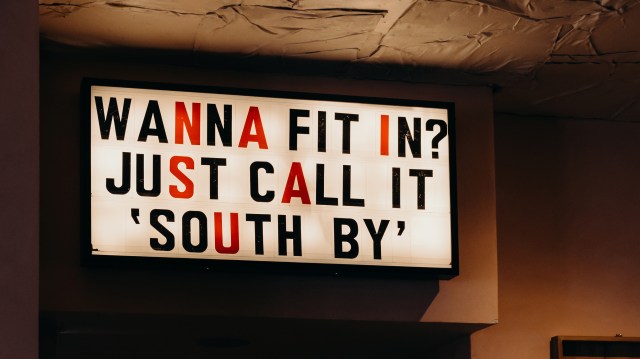If asked, most people probably wouldn’t be able to define the job of a television showrunner. So, what is it?
“Basically, as the showrunner, you have to deliver the show,” says Karey Dornetto, executive producer and showrunner of the new Comedy Central series Awkwafina Is Nora From Queens.
Liz Tigelaar, showrunner of the upcoming Hulu series Little Fires Everywhere, based on the best-selling novel by Celeste Ng, describes her position as “a lot like being the boss of a company, overseeing all departments and making sure they are working in unison.”
But it’s more complex than merely being the boss. Dornetto says she’s responsible for choosing writers for each episode, ensuring scripts are delivered on time, working as a liaison between the network and the writers, and hiring a line producer — who hires all the people necessary to produce a TV show. It is, in uncomplicated terms, a big deal.
“I want to kick the tires on every idea; I want people to poke holes in the stories and really challenge them. Collaboration makes everything better, especially when you’re working with people you trust."
Jen Flanz, showrunner of The Daily Show With Trevor Noah, has a different perspective on her position. “I see my most important job as a showrunner to always be thinking of the show holistically. To me, that means listening to every idea for content, every plan on how to execute, every individual ambition, and every gripe — and then assessing each in relation to how it will influence the greater good of the show.”
Tigelaar, who has also produced Nashville and Casual, compares being a showrunner to motherhood. “If the show is my baby, I try to guide it and steer it in the right direction,” she says. “But I also have to be able to let go and let it happen. I try to empower people, to make everyone feel ownership, where it doesn’t feel like my show but our show.”
When it comes to collaboration, Tigelaar wants to hear from everyone in the writers’ room. “I want to kick the tires on every idea; I want people to poke holes in the stories and really challenge them,” she says. “Collaboration makes everything better, especially when you’re working with people you trust.”

Photo of Liz Tigelaar
Flanz, who has held numerous positions on The Daily Show since 1999, adds that “this only works when everyone feels comfortable speaking up. So creating that space safe to throw out good and bad ideas is key.”
Like Flanz, Dornetto has a long history at Comedy Central. Her very first television job was in the writers’ room on South Park, now entering its 24th season on the network. “I was pretty clueless,” recalls Dornetto, who came from the world of standup comedy.
Working on South Park would be an intimidating experience for most fledgling writers, and Dornetto was so nervous that it took her three weeks to start talking to her colleagues. When she finally did, Dornetto found the space welcoming and learned a lot about producing television.
However, not every writers’ room has been so comfortable. Dornetto recalls one in particular — she declines to name the series — where she felt like an outsider. “I was the only woman in the room of, like, 14 people,” she says. “And I was the only gay person, too.”
Though it still has a long way to go, the TV industry is notably more diverse than its big screen brethren in Hollywood, with far more women running shows on television than directing films. According to the annual inclusion study by the USC Annenberg School for Communication and Journalism, in 2019, a mere 10.6 percent of the top 100 films released were directed by women. In contrast, San Diego State’s Center for the Study of Women in Television & Film reported that from 2018 to 2019, women made up 31 percent of all creators, writers, producers and directors on television.
“I think what’s happened now is that there’s more shows and there’s more female creators and, I think, diverse creators,” says Dornetto. “The more showrunners or creators that are diverse, the more diversity there’ll be.”
While Flanz notes that change has been “slow and extremely retroactive,” she feels grateful to be part of it. “I’m glad to be working at a time and place where you can see such a massive shift in the environment and be in a position where I can continually try to be part of that change,” says Flanz.
Diversity is also important to Tigelaar, who explains that the concept extends beyond race to include “gender, class, age, sexual identification, sexual orientation — even diversity of how people’s minds and bodies work.” Tigelaar says the writers’ room on Little Fires Everywhere is the “most diverse room” she’s ever worked in.
“I want to create something that moves us, that we believe in, and that hopefully moves others,” says Tigelaar. “But it all starts with wanting to be a good leader, a good listener, and a good person.”
Karey Dornetto and Jen Flanz will join fellow Comedy Central showrunner Phoebe Robinson for the “The Women Who Run The Shows” featured session at SXSW, while Liz Tigelaar will be part of the “Sparking Female Stories: Hulu’s Little Fires Everywhere” Featured Session. Both are part of the Film & TV Industry Track at the SXSW Conference.




